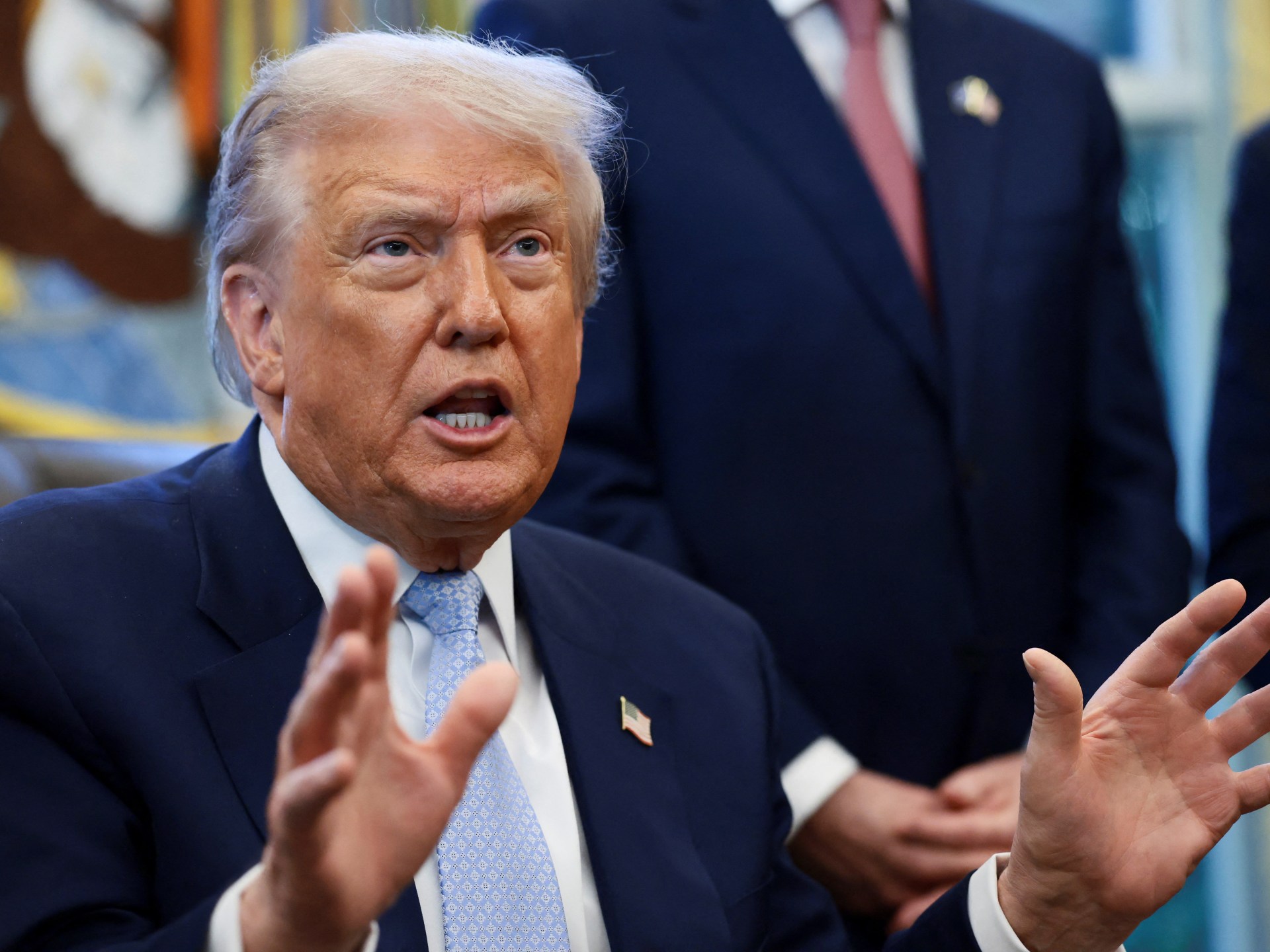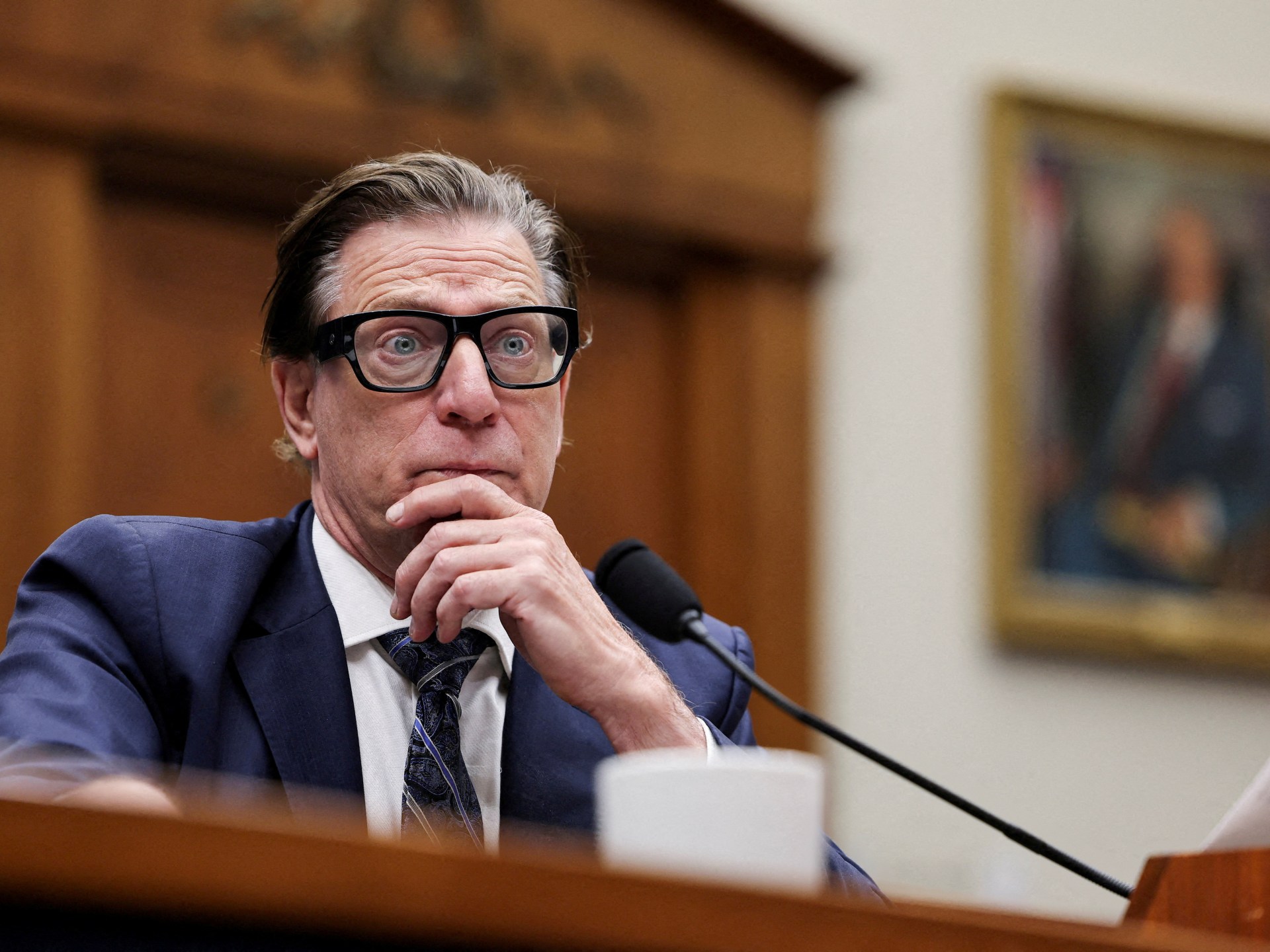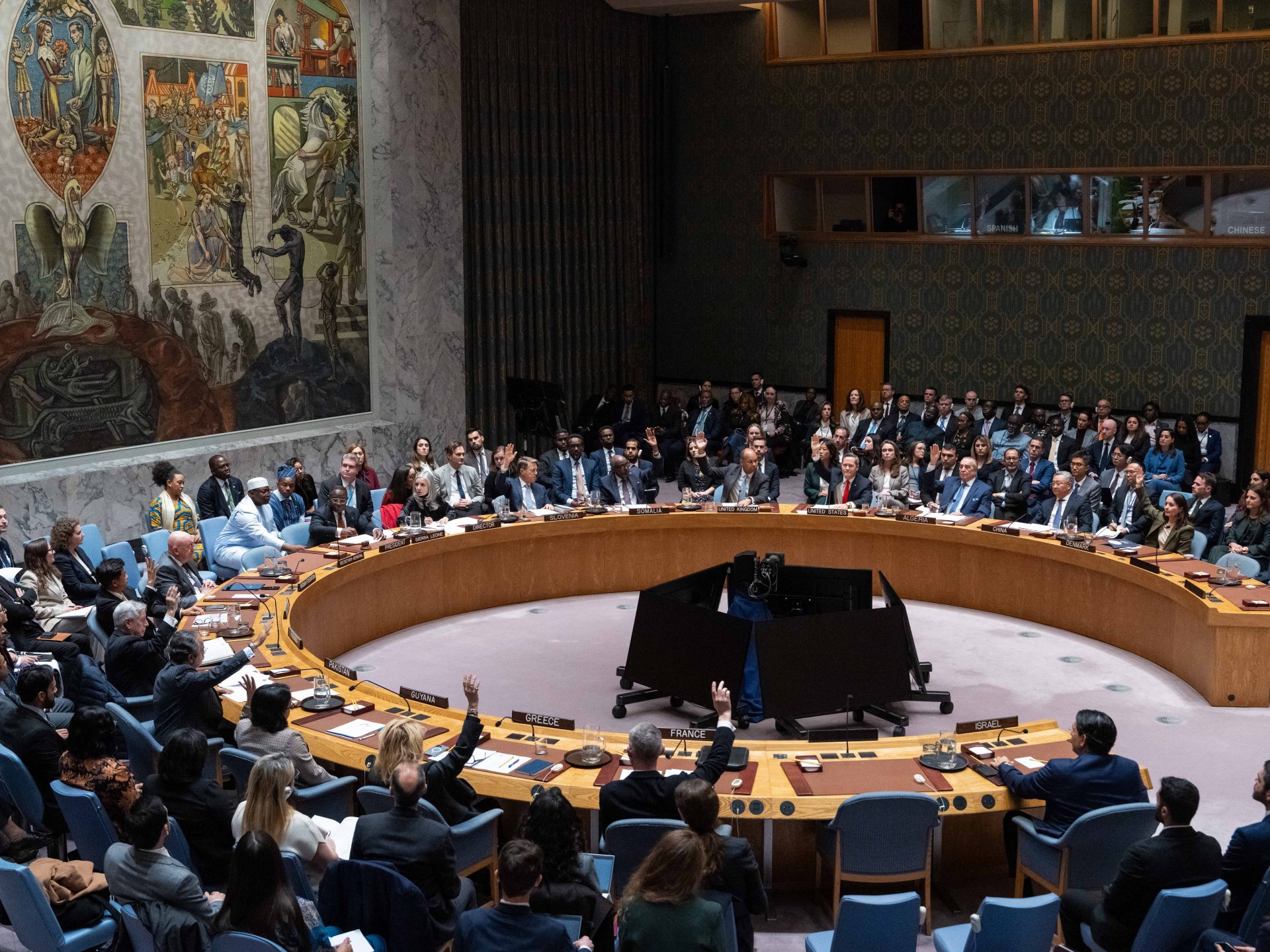US president signals major arms deal before Saudi Crown Prince Mohammed bin Salman’s visit to the White House.
United States President Donald Trump says he will greenlight the sale of advanced F-35 fighter jets to Saudi Arabia, signalling a departure in how Washington handles sophisticated weapons transfers to Arab countries.
Trump made the announcement on Monday at the White House, just one day before Crown Prince Mohammed bin Salman is due to visit. “We’ll be selling F-35s,” the president told reporters, lauding Washington’s ties with Riyadh.
Recommended Stories
list of 3 itemsend of list
“Yeah, I am planning on doing it. They want to buy them. They’ve been a great ally,” Trump said.
The decision marks a substantial win for Riyadh as Trump works to persuade Saudi Arabia to establish official ties with Israel as part of the Abraham Accords.
But Saudi officials have repeatedly reasserted the kingdom’s commitment to the Arab Peace Initiative, which conditions recognition of Israel on the establishment of a viable Palestinian state.
The potential arms deal between Washington and Riyadh raises questions about preserving Israel’s qualitative military edge, which is enshrined in US law. Some Israeli officials have already voiced opposition to the transfer of F-35 jets to Saudi Arabia.
The US has a decades-old commitment of ensuring Israel retains superior military capabilities over potential regional adversaries.
The principle, first established under President Lyndon Johnson in 1968 and formally adopted by President Ronald Reagan, has guided American arms sales in the Middle East for more than four decades.
Every US administration since has pledged to preserve Israel’s ability to emerge victorious against any likely combination of regional forces.
The F-35, manufactured by Lockheed Martin, is widely regarded as the world’s most advanced fighter jet, featuring technology that makes it difficult for enemy defences to detect.
Critics in Israel have warned the sale could erode the country’s longstanding military superiority in the region.
Yair Golan, an opposition politician and former deputy chief of the Israeli army, said the move risked opening “an arms race in the Middle East” that could undermine advantages Israel has held for decades. He also blasted Prime Minister Benjamin Netanyahu’s government as being “failure-prone”.
“The qualitative military edge, which has been the cornerstone of Israel’s security for many decades, is being squandered,” Golan said.
Israeli National Security Minister Itamar Ben-Gvir also said Israel must maintain its aerial superiority in the region.
“We are in the Middle East – we cannot get confused. We extend a hand to anyone who truly wants to extend a hand and not harm the State of Israel, but we must preserve our superiority,” he told the Jewish News Syndicate on Monday.
The timing of Trump’s announcement, just before Prince Mohammed’s visit to the White House, underscores the US administration’s efforts to deepen ties with Riyadh as part of its broader Middle East strategy.
Washington has historically managed concerns about Israel’s military edge by either downgrading weapons systems sold to Arab states or providing upgraded versions and additional equipment to Israel.
Prince Mohammed’s visit comes as the shaky ceasefire in Gaza continues amid near-daily Israeli violations.
On Monday, when asked about a potential F-35 deal with Riyadh, Trump invoked the US attack on Iran in June, which he said “obliterated” the country’s nuclear facilities.
Saudi Arabia was not involved in those strikes, but the kingdom’s official news agency, SPA, reported on Monday that Prince Mohammed received a handwritten letter from Iranian President Masoud Pezeshkian before his trip to Washington – without providing details about its content.
If the F-35 sale materialises, Saudi Arabia would become the first Arab country in the F-35 programme.
In 2020, Trump approved the sale of F-35 jets to the United Arab Emirates after Abu Dhabi agreed to establish formal ties with Israel. But the deal fell through after Joe Biden succeeded Trump in 2021 amid concerns by US lawmakers over the security of the technology.
The US Congress can disapprove weapon sales authorised by the president and his secretary of state.










